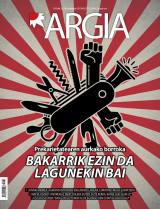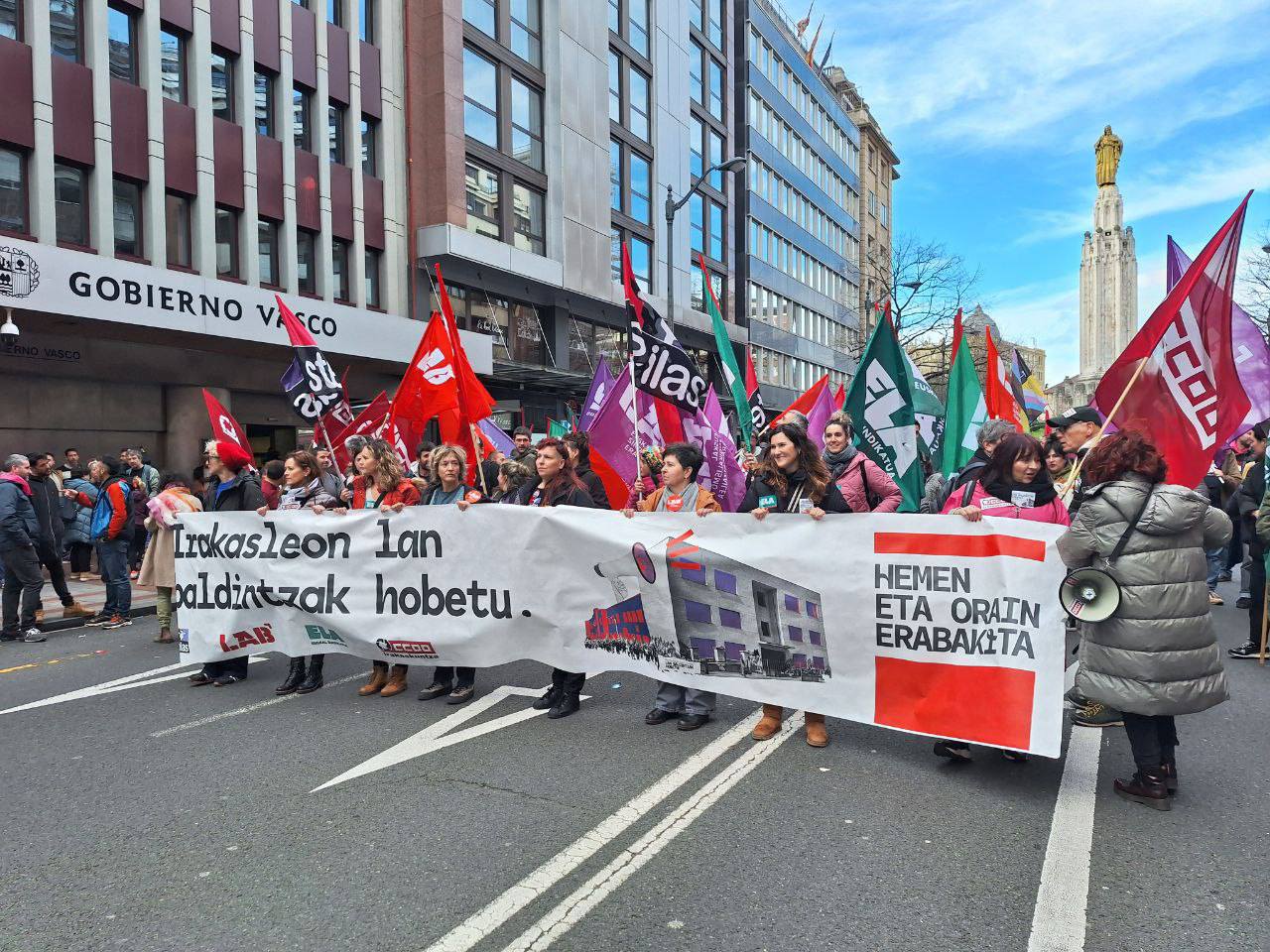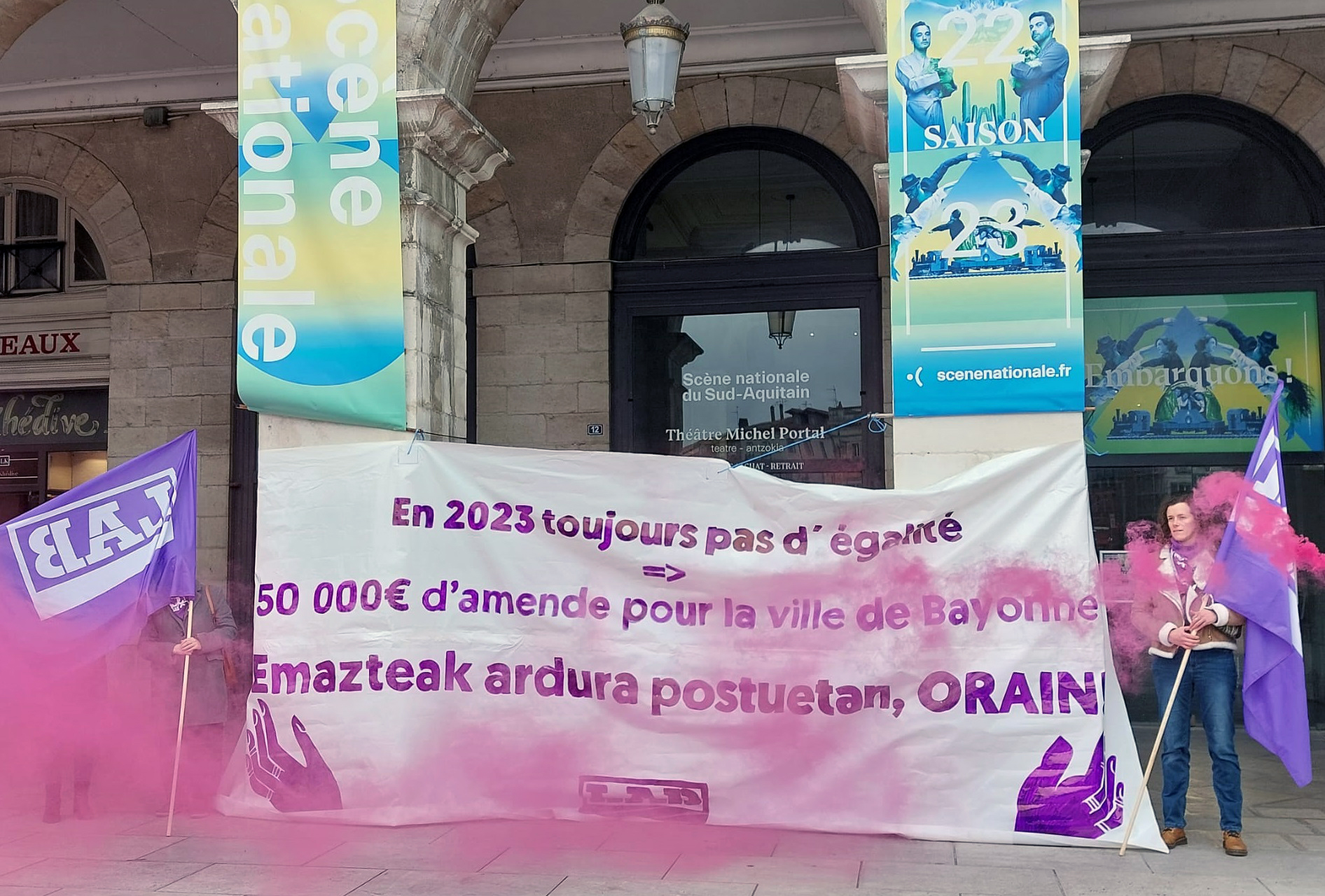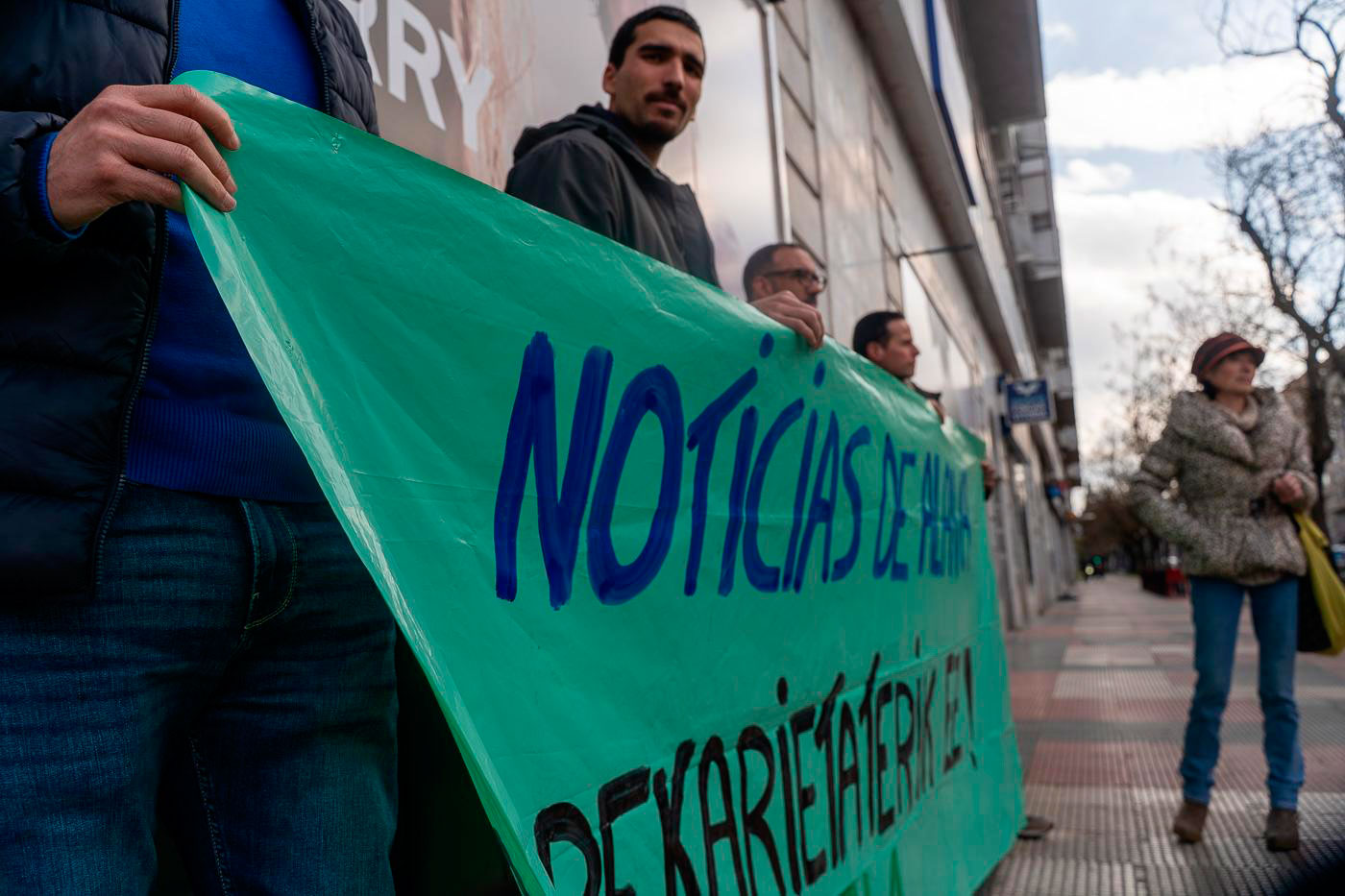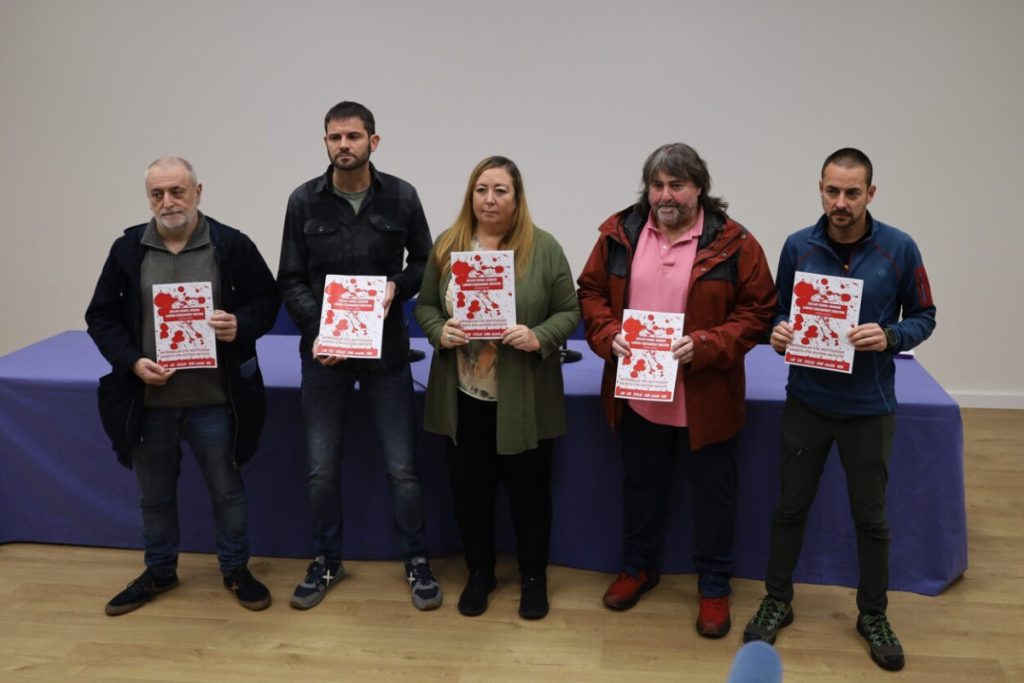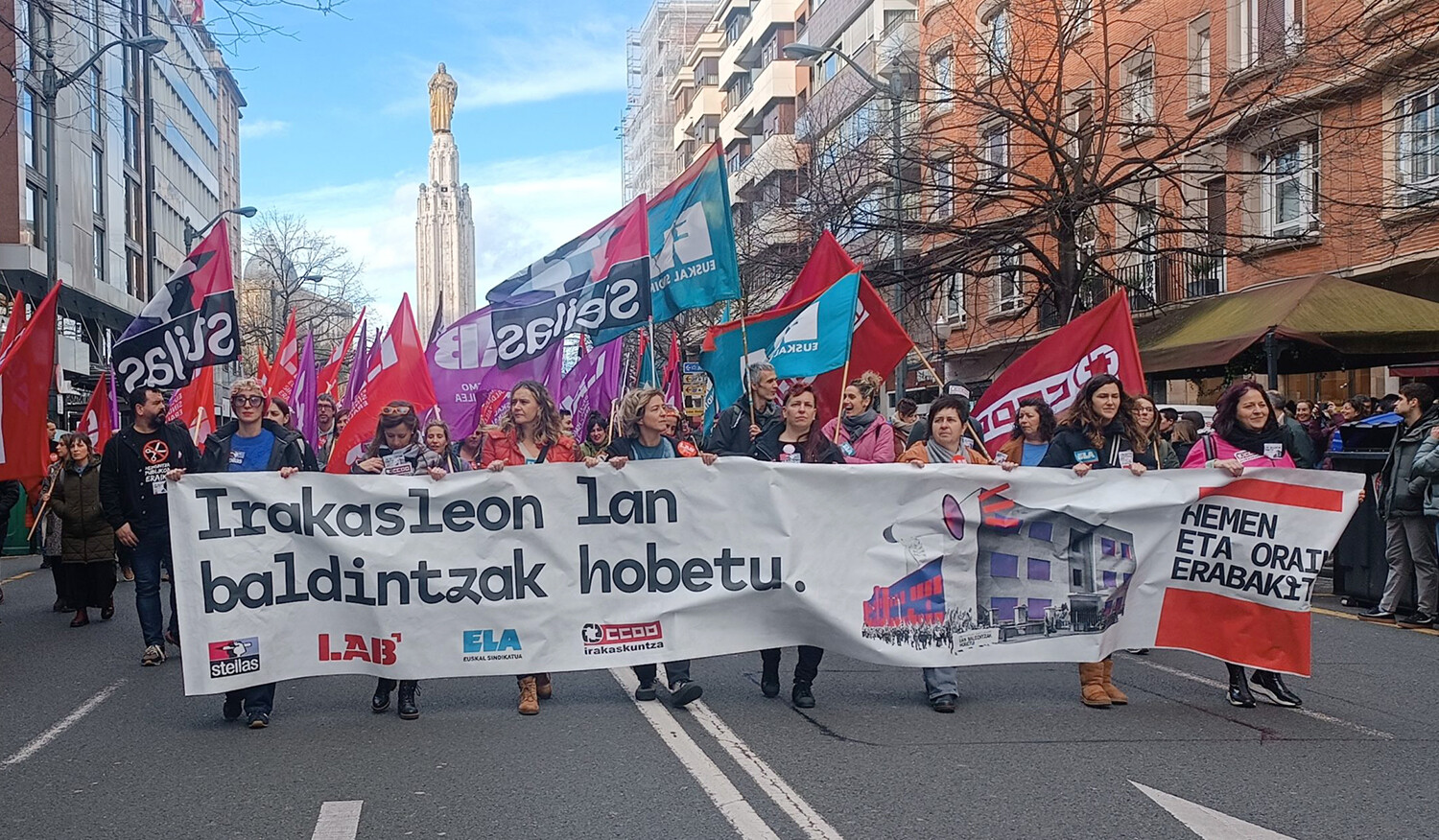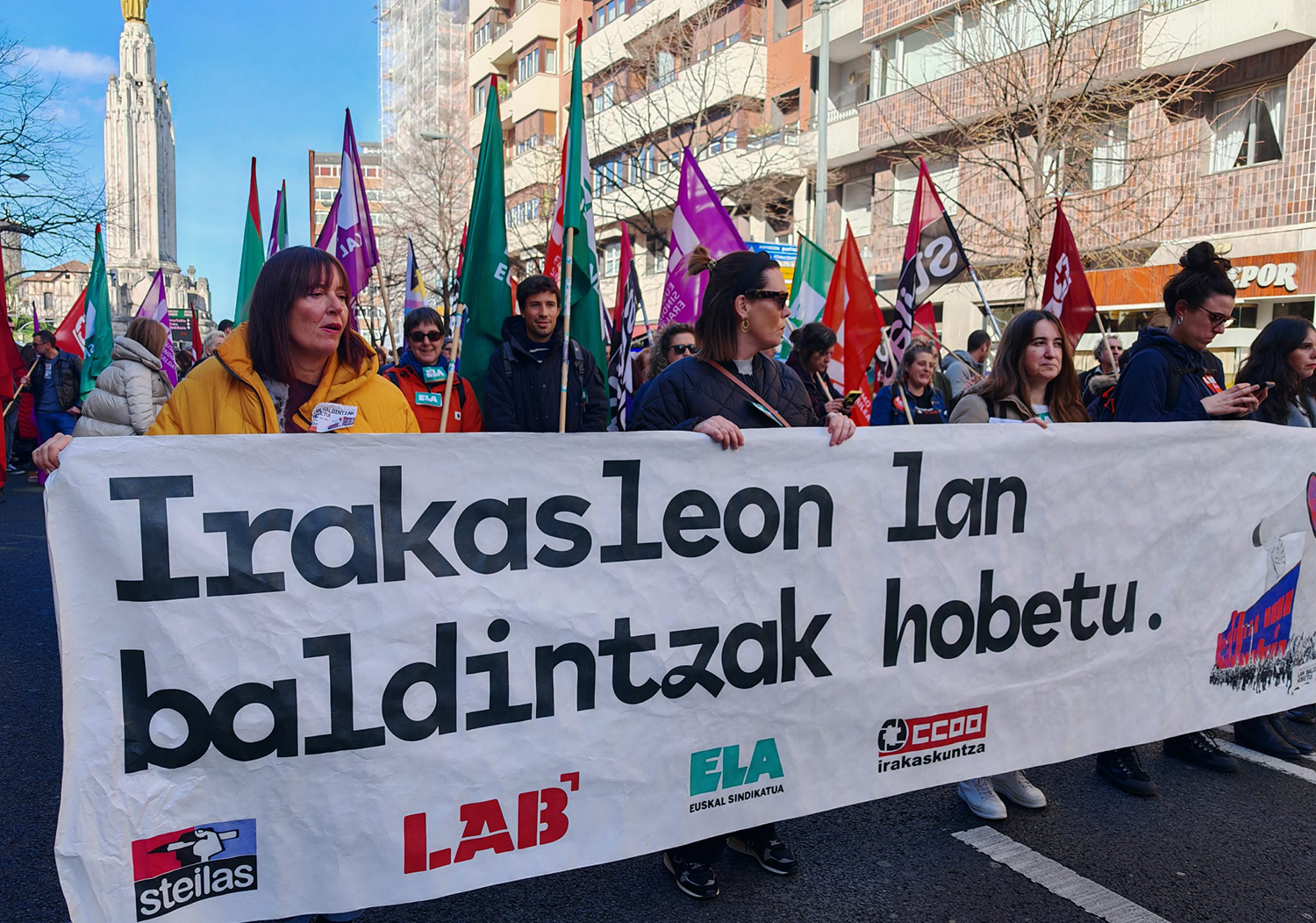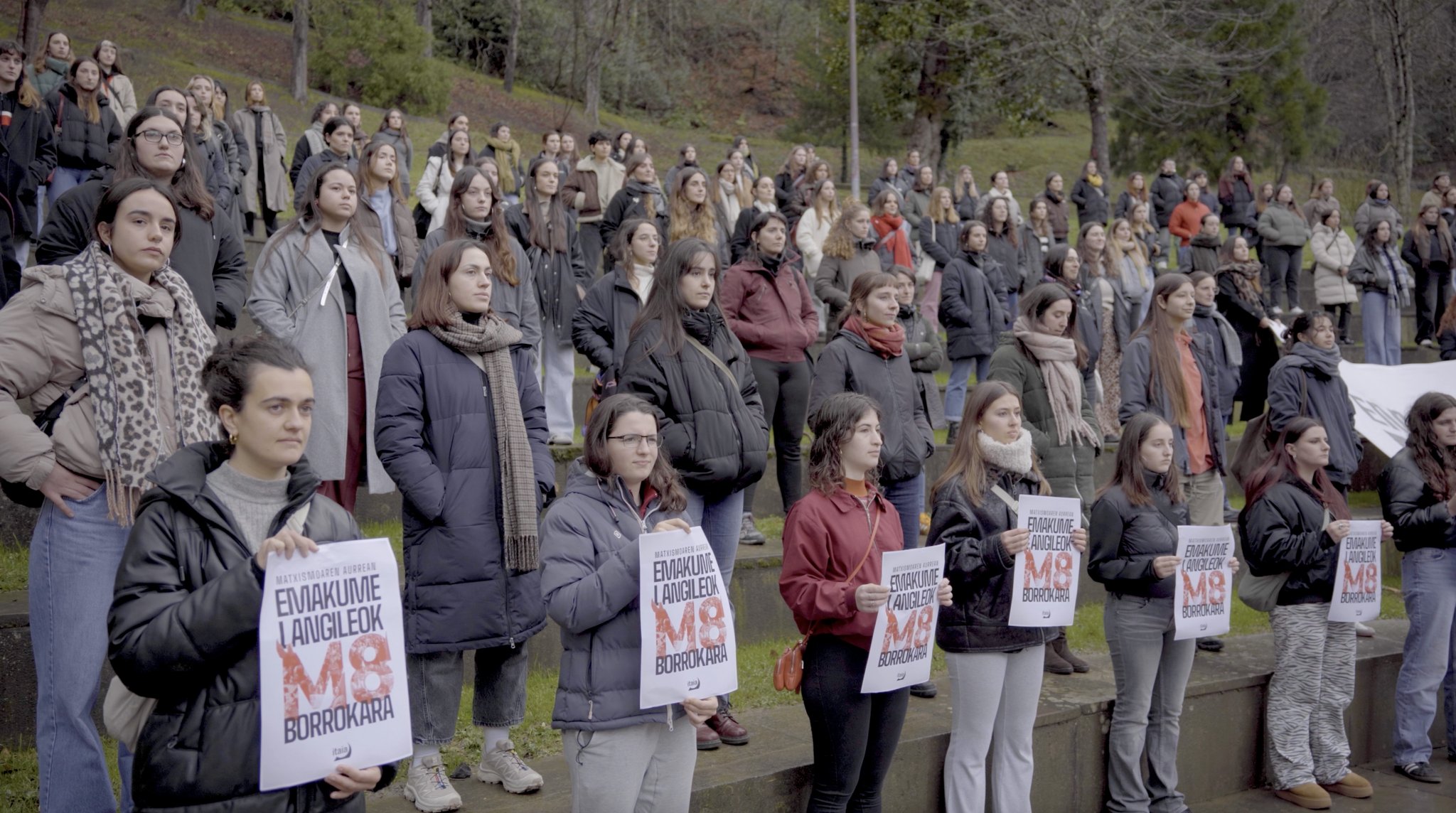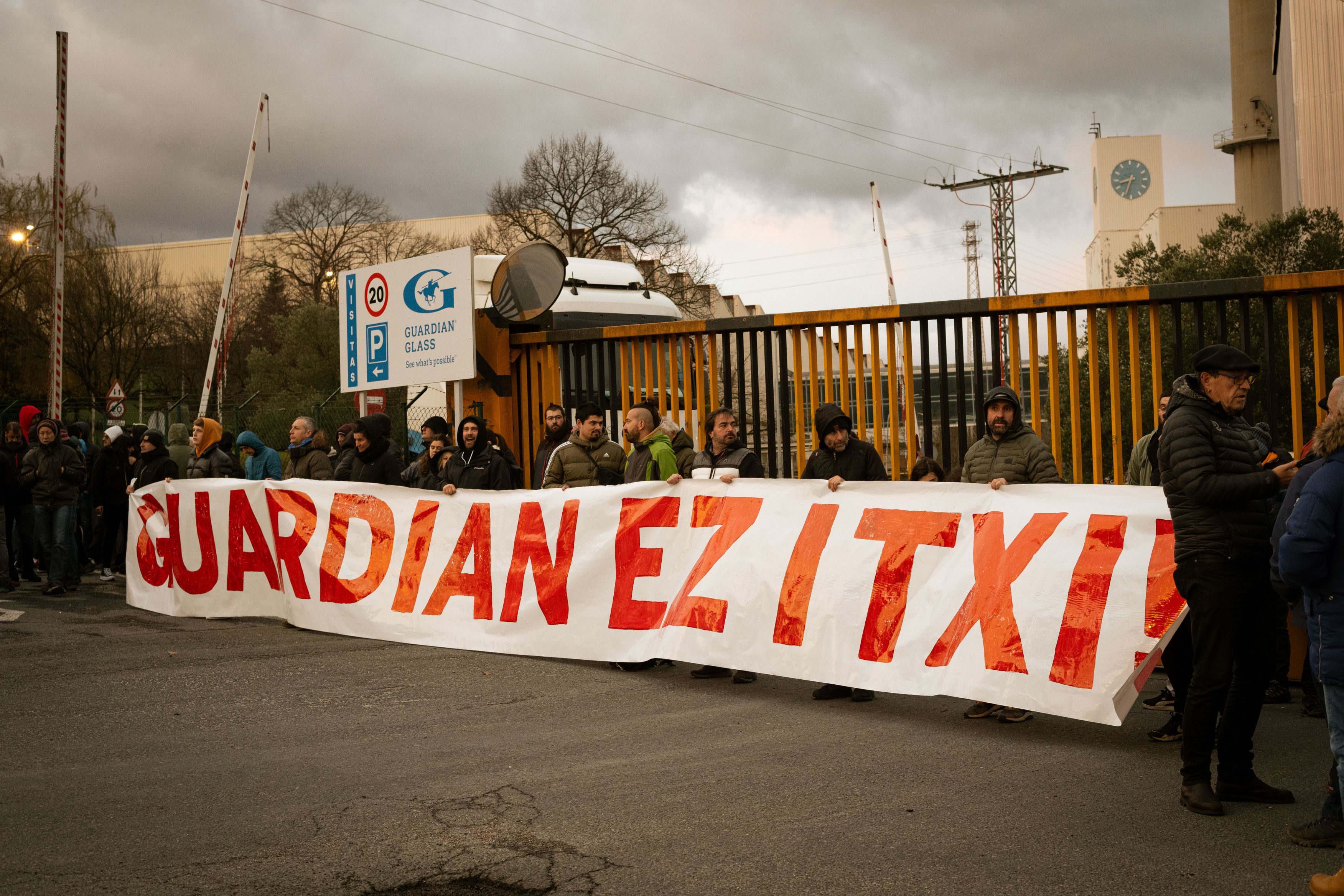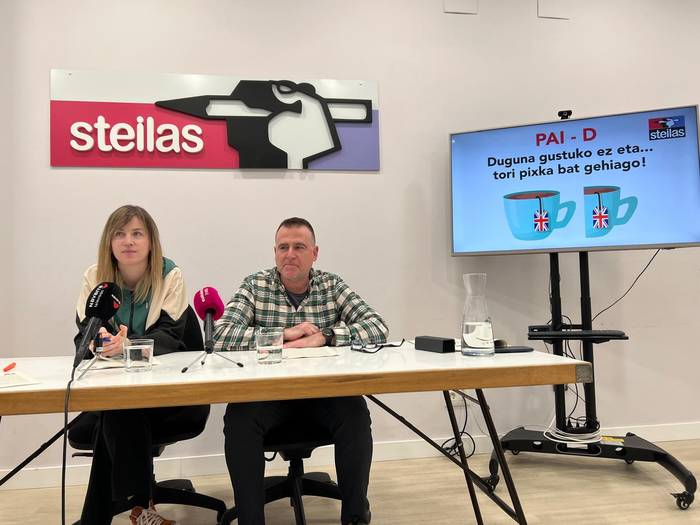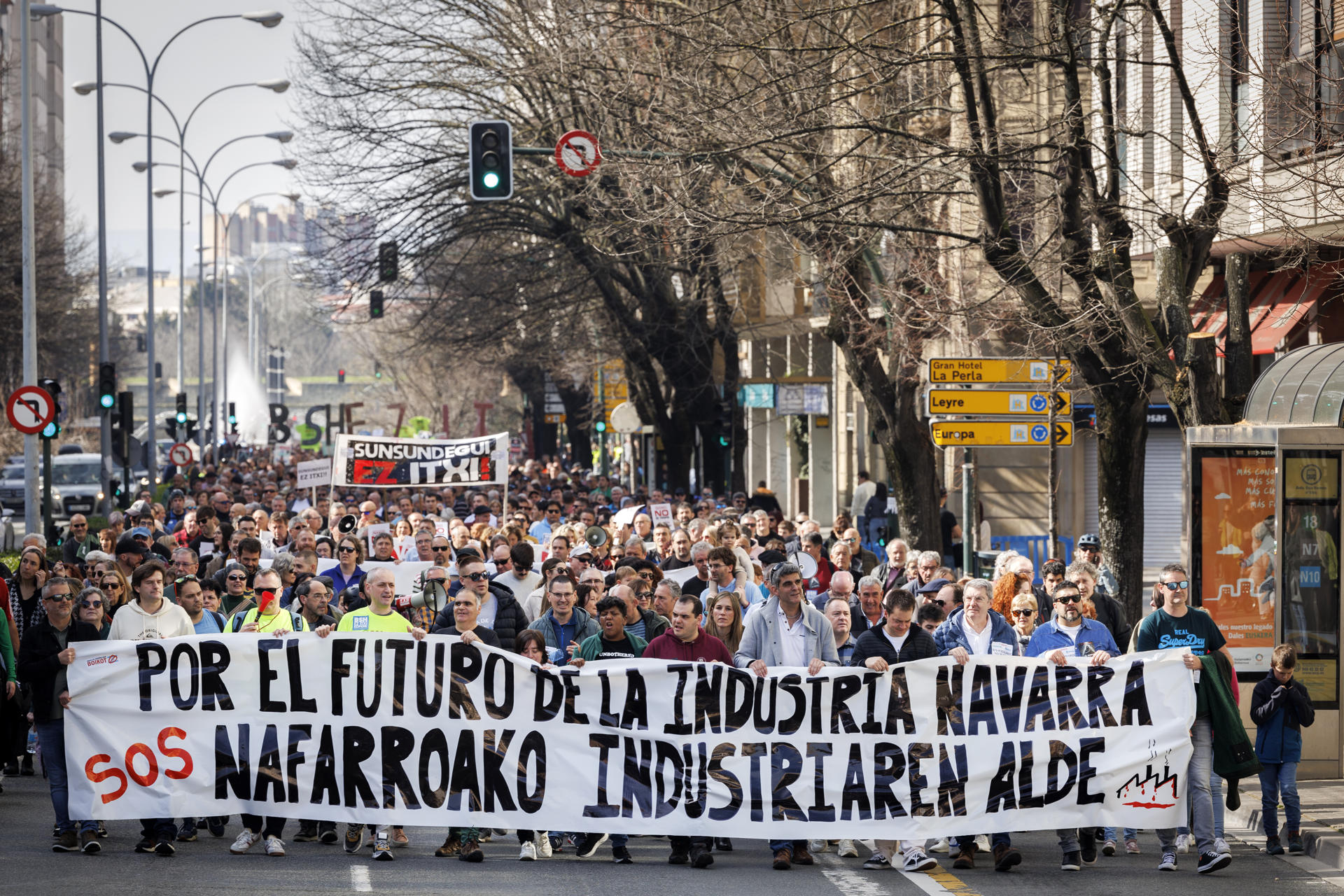"We defend those who cannot be unions"
- At the end of last July, the restaurant Koi Sushi paid Miguel everything he owed, to one of the restaurant’s distributors. This victory would not have been possible if Miguel had not come to the Workers' Self-Defense Network to assert his rights, and without the support and concentrations promoted by this institution for a month and a half.
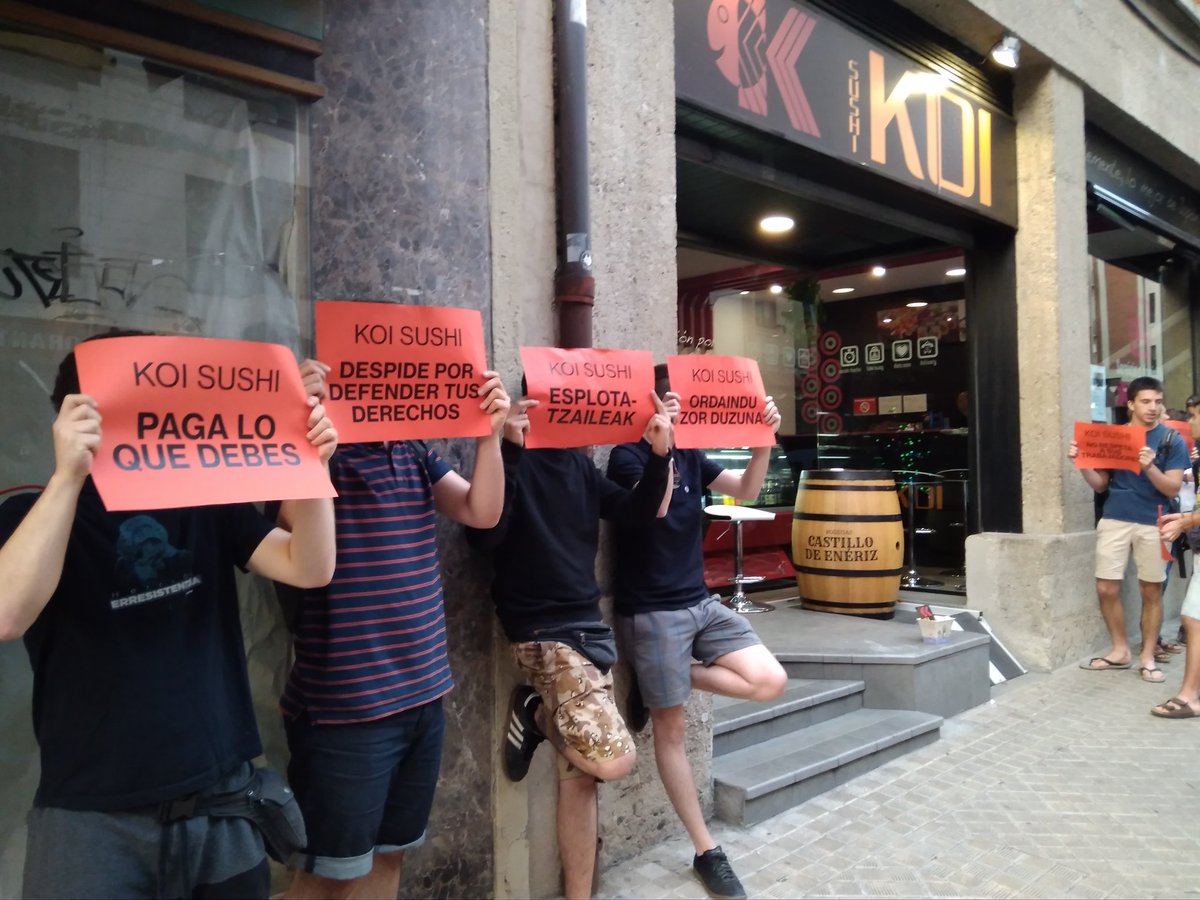
How did the Workers' Self-Defense Network emerge?
We met several people with the same concern: it seemed to us that the youth movement had the work as something distant. We started organizing talks, but beyond the mere claim, we wanted to actively fight to improve working conditions. Gradually more people met, social groups were made known and the presentation was made in November 2016.
But you had experience…
In the Sanfermines of 2016 we presented ourselves publicly with a campaign; we dug the city “San Fermín exploits you. You enjoy it, they work.” The society was not yet constituted, but we saw that at the festivities there was a lack of respect for those who were raised, for street vendors and for many barrels. Our intention was to change the point of view of the politicization of parties, not just to put banners in the holiday enclosure, to denounce the increasingly widespread conditions of underpaid and covert employment that many times are forgotten. The campaign was a success and last year we did it again. Later on, we campaigned on the company's dinners. We wanted to emphasize that the boss invites you, but after all you pay.

You are also actively involved in conflicts.
Of course it does. In addition to organizing conferences and campaigns, in practice our task is to try to resolve the conflicts of the people who visit us or help us in other struggles, disseminating information and participating in mobilizations, as we did in the Caprabo workers’ strike.
So do they work as an advisory service?
No, it is part of our initial political thinking to reject this area of work. We want to be a practical and effective tool to facilitate worker participation and to establish solidarity networks. We act in places where trade unions do not arrive: lack of interest in the sector or lack of defensive capacity of workers. We do not want to give priority to legal channels; our way of working is to make conflict visible in the effort to extend class solidarity. We believe that with this method, in addition to helping this person, a consciousness is generated that gets fatter with each struggle. In particular, we want the people concerned to be involved and to know that there is a network of people in their favour.

They are still deciding what structure they will have…
Yes, we are in the process of decentralisation. Our area of activity is the Region of Pamplona and, after a year of travel, we want to start working in the neighborhoods. We want to create small neighborhood commissions for propaganda work, conflict detection and relationship with the social structure. For people to respond, you have to be organized in the neighborhood, but you don't need a heavy structure. This model is effective in working with the new proletariat of the services sector, but there is another much more difficult reality to come: industrial subcontracting, linked to temporality and to temporary work companies, which exploits many young people.
But even though you are young – you are between 21 and 32 years old – you do not want to limit yourself to the precariousness of young people…
From the beginning we refused to do so. Society tends to label everyone and divide them into small groups, and we wanted the opposite. If youth, immigration or women do so separately, the working class eventually loses strength. We are quite unifying and, furthermore, we want to get out of the militant environment. We want to reach people with problems that go unnoticed. So we tried to make aesthetics not eternal, with the traditional symbols that bother us at first glance.
What diagnosis did they make of the labour market to see the need for such an organization?
Precariousness and temporary work are widespread, which does not allow for stable organisation in the workplace. We are born to defend those who cannot join together, because there are people who work long hours in this society and who pay very little and cannot pay EUR 60 per month or defend no one. The working class and the forms of organization are being reformed. We have seen this in some examples of social unionism, such as the Movistar or Bershka strike, or organisations that are more territorial based than in the workplace, such as ADELA (Self-Defense of Workers) in Carabanchel or the Seattle Solidarity Network.
And what has been the response of the traditional unions?
We've talked to almost everyone. We had more affinity with the little ones and more mistrust with the older ones. We are something else. We did not want to enter into this “trade union partisanship”, but to form a unifying and assembly structure. Once, in a factory conflict, we were asked what interests we had. All we want is for people to organise themselves at work and to create bonds of solidarity. We do not want an affiliate structure, but a militant one.
In the video below you can see Koi Sushi, the employee who owed the money to him, congratulating him on the pressure and thanking his solidarity.
This interview was posted by Hordago - El Salto and we brought it to the Basque Country thanks to the Creative Commons license.
“Posta publikoa eta kalitatezkoa. Eskubideen aldeko Hitzarmen eta Akordio baten alde” aldarrikapenarekin, LAB, ESK eta ELA sindikatuek lan-baldintzak eta posta-zerbitzu publikoaren kalitatea defendatzeko mobilizazioa egin zuten atzo, hilak 12, Bilboko Eliptika Plazan.
LABek, STEILASek, ELAk eta CCOOek greba egutegi bateratua aurkeztu dute Bilbon: martxoaren 25, 26 eta 27, eta apirilaren 1 eta 2. Egungo hitzarmenak aldarrikatutako edukietatik urrun kokatzen direla adierazi dute, "bai sukaldearen eta garbiketaren kolektiboan zein... [+]
Nahiz eta Nazio Batuen Erakundeak (NBE) 1977an nazioarteko egun bat bezala deklaratu zuen eta haren jatorriaren hipotesi ezberdinak diren, Martxoaren 8aren iturria berez emazte langileen mugimenduari lotua da.
Lan baldintzen "prekarietatea" salatzeko kontzentrazioa egin zuten asteartean egunkariaren egoitzaren aurrean. Abenduaren 2tik sindaura greban daude langileak eta mobizlizazioak "areagotzea" erabaki dute orain.
Langileek salatu dute zuzendaritzak ez diela lan baldintzen gaiari heldu nahi izan eta enpresak nahiago izan duela Gaztea Sariak ekitaldia bertan behera utzi, “horrek sortutako albo-kalte ekonomiko eta sozial guztiekin”, arazoari irtenbidea eman baino.
Mendizale batek asteburuan ikusi du animalia Lapurdiko Azkaine herrian, eta otsoa dela baieztatu du Pirinio Atlantikoetako Prefeturak. ELB lurraldean "harraparien presentziaren kontra" agertu da.
2024ko laneko ezbeharren txostena aurkeztu dute LAB • ESK • STEILAS • EHNE-etxalde eta HIRU sindikatuek aurtengo otsailean. Emaitza larriak bildu dituzte: geroz eta behargin gehiago hiltzen dira haien lanpostuetan.
Jakina da lan ikuskariak falta ditugula geurean. Hala ere, azken egunotan datu argigarriak ematea lortu dute: lan ikuskaritzaren arabera, EAEko enpresen %64ak ez du ordutegien kontrolean legedia betetzen. Era berean, lehendakariordeak gaitzetsi du, absentismoaren eta oinarrizko... [+]
Aiaraldeko hainbat irakaslek mezua igorri diete ikasleen guraso eta familiei, dagoen informazio zurrunbiloan, grebarako arrazoiak modu pertsonalean azaltzeak euren borroka eta lanuztea hobeto ulertzeko balioko dielakoan.
Martxoaren 8a hurbiltzen ari zaigu, eta urtero bezala, instituzioek haien diskurtsoak berdintasun politika eta feminismoz josten dituzte, eta enpresek borroka egun hau “emazteen egunera” murrizten dute, emakumeei bideratutako merkatu estereotipatu oso bati bidea... [+]
Grebaren bezperan Hezkuntza Sailak “edukirik gabeko” mahaia deitu zuela eta sindikatu deitzaileak “errespetatu gabe” akordioa “antzezteko” gutxiengoa duten sindikatuak “erabili” nahi izan zituela salatu ostean, beste bi greba... [+]
Martxoak 8aren izaera iraultzailea berreskuratzeko deia egin du Itaia emakumeen antolakunde sozialistak. Irene Ruiz Itaiako kideak azaldu digunez, “oldarraldi erreakzionarioaren eta matxismoaren aurrean proposamen iraultzailea hauspotu eta kontzientzia sozialista... [+]








